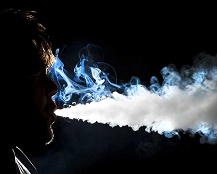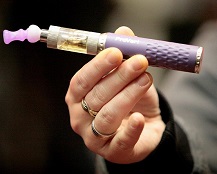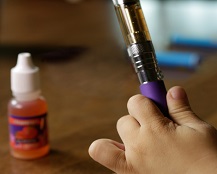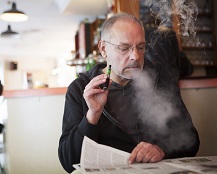With more vaping bans proposed, some movements on the FDA regulations, a couple of new e-cigarette studies, several great articles on vaping from inside and outside the community, and one of the most thoroughly absurd winners of “Bullshit of the Week” so far: here’s the Week in Vaping.
It’s been a very, very long time coming, but the FDA has finally revealed its plans for the regulation of e-cigarettes.
Tobacco controllers sneak into a vape convention and discover “particles” in the air, a politician vapes in Congress, and UK data shows that the disastrous population-level consequences of vaping we keep hearing about don’t seem to be materializing: it’s the Week in Vaping.
Getting caught with an e-cigarette in some schools can get you suspended, tested for drugs and lead to “possession of drug paraphernalia” being marked on your school record. This means that for some students in states such as North Carolina, New Jersey, Washington and Connecticut, you’re better off being caught with cigarettes in school than e-cigarettes.
It’s all over the news these days – ‘a vape pen explodes, costing a man five of his teeth’; or,...
Jay-Z may very well have 99 problems but his position in the cannabis industry ain’t one. The hip hop man,...
Recap of the 2013 Electronic Cigarette Convention in Anaheim, CA, presented by West Coast Vapers Club.
According to the results, youth use of e-cigarettes doubled between 2011 and 2012, but the truth can’t be crammed as succinctly into a jaw-dropping headline. To see what the results really mean, you need to look at what they actually did and what they actually found.
The California Department of Public Health's new "Protect Your Family from E-Cigarettes" campaign is a rag-tag collection of lies covering a lot of ground, like some prohibitionist Gish gallop replete with straw men, half truths and outright demonstrable falsehoods, masquerading as “the Facts You Need to Know.”
Day 2 of the Electronic Cigarette Convention in Anaheim featured a workshop on e-cig regulations and e-liquid safety by Azim Chowdhury, Lou Ritter and Linc Williams from AEMSA.
MEPs have approved new and stringent rules on e-cigarettes, banning advertising and limiting nicotine content to 20mg/ml beginning in 2016.
With some claims that e-cigarettes are going to give us all cancer, more bans on vaping in Malaysian regions, some irrational state legislation proposed in the US, some positive coverage in the mainstream media, several excellent blog posts and a new coalition of students dedicated to spreading more bullshit about e-cigarettes, it’s the Week in Vaping.
The US Food and Drug Administration has declared a war on vaping products some time ago now. August 8th, 2016 marked...
The Welsh government has announced that it will ban vaping in enclosed public places under a new public health law, igniting much debate about the pros and cons of such a decision. It's argued that vaping could pose a health risk to bystanders and may re-normalize smoking, but are these concerns justified?
A UK couple has been banned from adopting a child because the husband was seen vaping, based on advice from the British Association for Adoption and Fostering that “users of e-cigarettes be considered smokers” until the completely ill-defined point at which the concerns about e-cigs have been settled.
The Medicines and Healthcare Products Regulatory Authority (MHRA) in the UK has recently announced that it will regulate e-cigarettes (as well as other nicotine-containing products) as medicines from 2016 onwards. This move is a huge step forwards for the e-cig industry – despite some concerns – but what will the legislation mean for UK vapers? And is the FDA likely to pursue their regulation in the same vein?
After a great deal of controversy over the last time Five Pawns’ juices were tested, the company has now released new test results. The findings – which in the previous test showed up to 2,500 ppm (or 2,500 μg/ml) of acetyl propionyl (AP) in Absolute Pin – now show vastly lower levels of the chemical. So what’s going on?
On November 8, California voters decided to say a firm ‘yes’ to Proposition 56, which will increase the excise tax on cigarettes and other products containing nicotine by a hefty margin.
E-cigarettes are harmful, sold by the tobacco industry, contain toxic and cancer-causing chemicals, emit a “pollution cloud” that does “second-hand harm to others” and are just the "latest gimmick" from Big Tobacco, according to the new #CurbIt campaign from the San Francisco Tobacco Free Project.
The Week in Vaping is back, with a run-down of the latest vaping and tobacco harm reduction related research, a look at recently proposed legislation, regulations and bans on vaping – increasingly frequently stretching outdoors – and some of the best blog posts from the community this week.


















